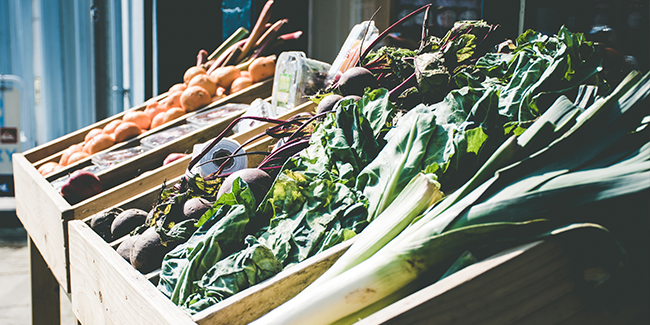Leaving the European Union without a deal that secures frictionless access to the Single Market could be potentially disastrous for the food and drink sector in Wales, the National Assembly's External Affairs Committee has said.
 As part of its work on how the Welsh food and drink sector is preparing for Brexit, the Committee heard that around two thirds of Welsh food and drink exports currently go to the European Union and that the total value of exports was around £335 million in 2016. Food and drink exports to the 'Rest of the World' currently account for around one third of exports.
As part of its work on how the Welsh food and drink sector is preparing for Brexit, the Committee heard that around two thirds of Welsh food and drink exports currently go to the European Union and that the total value of exports was around £335 million in 2016. Food and drink exports to the 'Rest of the World' currently account for around one third of exports.
In terms of the red meat industry in Wales, the Committee heard that Wales only consumes 5 per cent of the lamb it produces, with 55 to 60 per cent consumed in the rest of the UK. The remaining 35 to 40 per cent is exported, of which 92 per cent is exported to the European Union. Furthermore, 15 per cent of Welsh beef is exported, with 93 per cent of export going to the rest of the EU. The value of Welsh lamb exports is around £124 million a year, and Welsh beef amounts to £61 million a year.
The Committee's Chair, David Rees AM said:
"The food and drink sector in Wales is vitally important to our economy, both in terms of the income generated and the jobs supported by the sector. We are very concerned about the potential implications for Wales of a loss of market access for our food and drink producers, particularly farmers in the red meat industry, who are dependent on exports to the EU for a significant chunk of their export income. Furthermore, we heard that although there are efforts in place to expand into new and emerging markets, factors such as the short shelf-life and seasonality of food products such as beef and lamb will mean that these new markets will not come to fruition for many years to come."
The Committee also heard about the importance of the EU's protected food names scheme, which currently gives legal protection against imitation of registered regional and traditional foods or drink throughout the EU. Currently 15 Welsh products are registered under the scheme including Welsh lamb, Anglesey sea salt and Pembrokeshire potatoes.
David Rees AM said:
"The protected status currently afforded to Welsh food and drink products is vital to the continued success of those products and the success of overall 'Welsh brand'. That is why we have called upon the Welsh Government to set out details of its discussions with the UK Government on arrangements for protected status after Brexit."
The Committee makes three recommendations in its report for consideration by the Welsh Government including:
that the Welsh Government's work on a new food and drink strategy and action plan takes account of the research currently underway to benchmark the sector and that any new strategy for the sector after Brexit sets out clear and ambitious aims, including use of appropriate targets, in terms of increasing Wales' access to new 'Rest of the World' markets for the export of Welsh food and drink products;
that the Welsh Government outlines what discussions it has had with the UK Government on the creation of a UK-wide [protected food names] scheme after Brexit including whether or not it has raised concerns about the limited amount of time available for consultees to take part in the consultation; and
that the Welsh Government, in its response to the report, outlines details of the work underway to support business to mitigate the effects of a "no deal" Brexit on the security and continuity of food supplies in Wales.
Read the full report:
Report on the preparedness of the food and drink sector in Wales (PDF, 185 KB)

